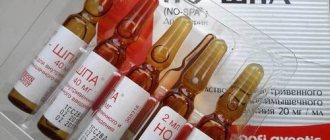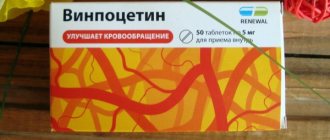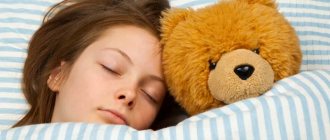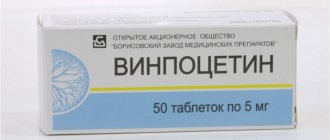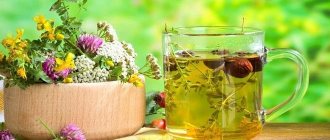Scientific research indicates that approximately 10% of the world's population suffers from insomnia, and a huge number of people claim that they cannot sleep without watching TV. However, TV, smartphone and computer do nothing to promote sleep. Rather, on the contrary, the blue light emitted by screens destroys the sleep hormone in our bodies.
The hypnotic effect of television is just a ritual to which a person is accustomed. The brains of those who watch TV at night are already programmed that sooner or later sleep will come after watching TV. A similar reaction occurs in the brains of those who like to read every night before bed, but for them the book serves as such a signal.
Exactly the same ritual that promotes good sleep can be evening tea drinking. And if you choose the right components for tea, you can achieve a hypnotic effect no worse than from less safe tablets.
Herbal tea for sleep: benefits and harms
Content:
- Herbal tea for sleep: benefits and harms
- Chamomile
- Valerian
- Lavender
- Melissa
- Hop
- St. John's wort
- magnolia bark
- Passionflower
- Ashwagandha
Until recently, herbal teas were perceived only as part of traditional or alternative medicine. But in the process of modern scientific research it has been revealed that some herbs have a hypnotic effect. We’ll talk about which herbs have these properties a little later, but for now let’s talk about some rules and warnings.
Although herbal teas are considered a safe treatment and in many cases are useful even for children, they also have side effects. Some of them can cause allergic reactions and are therefore contraindicated for allergy sufferers, while others can cause heartburn and stomach pain, making them unsuitable for people with gastritis or peptic ulcers.
Some herbal teas may be contraindicated in pregnant women, while breastfeeding, in those with autoimmune diseases, or before surgery. They may also be prohibited during treatment with prescription sedatives, antidepressants, anti-tuberculosis or anti-inflammatory drugs, blood thinners and blood pressure lowering drugs.
Read reviews about the treatment of sleep disorders
“I suffered for many years from chronic problems with insomnia, I could not do anything about it and I had already accepted that so be it, since this is my peculiarity. I took all the sleeping pills that were recommended to me. One day, while talking with friends, I heard that there was still a way out. One of them spoke about similar problems and told how she was treated at the Renaissance RC. I decided to try it and went to the doctor. After just 3 consultations I realized that things were getting better. My sleep is slowly getting better, I hope I can fully restore it.”
Svetlana Streltsova, Kaluga
“I would like to thank from the bottom of my heart the team of the Israeli Renaissance Clinic. Only here they could help me solve my health problem in general and sleep in particular, although I had almost despaired that this was possible in principle. For many years I noticed snoring, my blood pressure began to rise, I felt pain in my heart, I felt weak, drowsy, I could not concentrate during the day, my sleep was disturbed. Then I was finally diagnosed with sleep apnea, and I underwent a course of treatment. Thanks to the real experts! I feel much younger and more energetic.”
Vadim Kuznetsov, Tyumen
Chamomile
Chamomile tea is one of the most popular in the world. The dried flowers of this plant have a sweetish aroma and the same taste.
The journal BMC Complementary and Alternative Medicine published the results of a study [1] regarding the effect of chamomile on sleep quality. The experiment involved 34 people with insomnia. They were divided into two groups. Representatives of the first group drank chamomile tea for a month, the rest were in the control group, where they did not adhere to this ritual. After a month, people from the first group not only began to sleep better, but also became more active and alert throughout the day. Therefore, for those who have difficulty falling asleep, experts advise drinking a cup of warm chamomile tea 30 minutes before bedtime. In another experiment, ten patients with heart failure fell asleep almost immediately after drinking a cup of chamomile tea. Some of them slept for almost 90 minutes.
The thing is that chamomile has a calming effect on the body, also exhibiting a hypnotic effect. The plant contains a chemical known as apigenin, which acts on benzodiazepine receptors in the brain and causes sedation. This is why chamomile essential oils are often used in aromatherapy as a sedative.
Research shows that chamomile has anticonvulsant properties and is an excellent central nervous system relaxant. This plant contains antioxidants that neutralize free radicals that cause negative reactions in the body. But this is not all the beneficial properties of chamomile.
The plant can help relieve migraine attacks. Chamomile eliminates unnecessary anxiety, reduces the severity of allergies, inflammation, and relieves spasms. Tea from this plant helps strengthen the immune system, so chamomile drink is considered very useful in the cold season. It is rich in flavonoids, which help relieve stress and calm you down. Chamomile flowers are also a good source of various beneficial substances, including calcium, magnesium, potassium, fluoride, folic acid and vitamin A.
Despite the fact that chamomile helps cope with insomnia, in some cases it is not advisable to drink chamomile tea. There is a possibility that the drink will cause cross-allergy in people who have a reaction to chrysanthemums, ragweed, arnica, sunflowers, asters or marigolds. In most cases, a chamomile allergy manifests itself in the form of a rash, but more serious reactions such as anaphylactic shock, accompanied by swelling of the throat, difficulty breathing and shortness of breath, are also possible. Chamomile tea is also contraindicated for people with asthma, as it can provoke an attack of the disease. But people without allergies should not get too carried away with this drink. If you drink too much tea, and very strong tea at that, you may experience nausea and vomiting. Therefore, you should start drinking herbal tea with small portions.
Chamomile tea in combination with benzodiazepines, barbiturates and alcohol can cause excessive drowsiness, and the use of anticoagulants (blood thinners) increases the risk of bleeding.
Preparation: take 1 tsp. dried flowers, pour 1 cup of boiling water and let steep for 10 minutes. You can add a little honey before drinking.
Signs of poor sleep
There are average indicators of sleep problems:
- falling asleep lasts more than half an hour
- sleep is interrupted more than once a night
- after waking up at night it is impossible to fall asleep for more than 20 minutes
- Excessive daytime sleepiness—needs more caffeine to maintain alertness levels
“Drowsiness, difficulty falling asleep, frequent awakenings at night and daytime sleepiness are the main signs of poor sleep quality,” Olga Beyo, a somnologist and neurologist at the Semeynaya clinic, shares her experience.”
- weakness and fatigue after the final awakening
- concentration and memory are reduced, you have to think for a long time before making a decision
- irritability and emotional instability.
“First of all, to understand whether there are problems with sleep, you need to ask yourself the question: “What kind of sleep do I have?” recommends GMS Clinic somnologist and neurologist Mikhail Poluektov. “It’s the subjective sensations that are important: whether a person feels daytime sleepiness and how long it takes him to fall asleep.”
An important indicator of sleep deficiency is that its “efficiency” is less than 85%. Efficiency can be calculated in four steps:
- Take the time in minutes you spend in bed - not just resting - but the period from the moment you try to fall asleep until you wake up. For example, you got 480 minutes. Write down this value.
- Now count your sleep time: from the moment you fall asleep until you wake up. Naturally, it is impossible to detect the process of falling asleep down to the minute; these are approximate figures. If you wake up at night, record how long it took to fall back to sleep - this refers to the time in bed. For example, your sleep time was 420 minutes.
- Now divide your sleep time by your time in bed: 420/480 = 0.875.
- Then multiply this figure by 100 to get the final percentage: 0.875*100 = 87.5%.
The example shows that sleep efficiency is 87.5%, which means it is within normal limits. This is not a final or diagnostic test, but a handy and auxiliary tool that will help you understand whether you are satisfied with your own sleep or not.
Valerian
Valerian is another popular remedy for insomnia. The name of this plant comes from the Latin word meaning “to be healthy.” The medicinal properties of valerian were known back in Ancient Greece and Rome. In ancient times, the root of the plant was used to treat insomnia, headaches, neuroses and seizures.
Scientists make reasonable assumptions [2] that valerian not only promotes the onset of sleep, but also improves its quality, having a beneficial effect on the deep phases. This is crucial for restoring energy and allowing a person to feel rested.
The thing is that valerian roots contain substances that can influence certain parts of the brain, stopping mental activity and causing relaxation. This ability of the plant determines its calming properties. Therefore, if a swarm of thoughts prevents you from falling asleep, try drinking an infusion of valerian root.
The substances contained in this plant increase the production of gamma-aminobutyric acid (GABA) in the brain, a chemical compound necessary for relaxing the nervous system. GABA activates alpha waves and inhibits beta wave activity in the brain. In turn, alpha wave activity leads to a person becoming less restless and more relaxed.
The advantage of valerian is that it has almost no side effects. In addition to the raw materials for brewing tea, alcohol tinctures, essential oil of the plant, tablets and capsules with root extract are also used for sedative purposes.
Many people know valerian as an affordable sedative, but the extract of this plant can also be useful for treating insomnia, depression and anxiety, and helps relieve migraines. Valerian root tea is also useful for hyperactivity and helps to concentrate, for example, before an important exam.
However, some scientists claim [3] that the effect of teas with valerian extract becomes most noticeable only after several weeks of use, but the calming effect of the first two weeks, according to their observations, is solely a placebo effect.
Despite the many beneficial properties, you should not get too carried away with valerian teas. If you drink too much of the herbal drink, the desire to sleep will appear not only in the evening and at night, but also during the day. Also, an overdose of the extract may cause headaches, confusion, and stomach upset.
Preparation: 2 tsp. chopped roots in 1 glass of water, cook for 1 minute, leave for 30 minutes.
Tea with valerian
Valerian
(Latin Valeriana )
is an herb that has been used for centuries to treat problems such as insomnia, nervousness and headaches. Valerian is an excellent natural supplement that can ensure sound sleep. Valerian tea is perhaps the most popular sleep tea and the most famous natural sleep aid. Valerian is sold in the form of alcohol tincture or tablets. Additionally, valerian root is dried and often added to tea. According to a 2000 study, this herbal supplement increases levels of the important neurotransmitter GABA. This neurotransmitter plays a fundamental role in the human nervous system. It is involved in the process of brain inhibition. Simply put, GABA helps calm your nerves and help you fall asleep. Popular sedatives and sleeping pills have a similar mechanism. However, it is not yet entirely clear how valerian helps you sleep. A 2010 review of eighteen studies found that valerian root may be an effective treatment for insomnia. A small study of 27 people with sleep disorders confirmed this idea. 89% of subjects reported improved sleep after taking valerian extract. Another study showed that valerian helps you fall asleep faster. Valerian is the most popular and most effective sleep tea on our list and is worth trying if you have insomnia or a sleep disorder.
Lavender
It is well known that the aroma of lavender has calming properties. But in order to improve your sleep, fall asleep faster and easier, you can use not only aroma lamps, but also drink tea with the flowers of this fragrant plant. This drink has a slightly sweet taste and pleasant aroma.
The homeland of lavender is the Mediterranean, whose inhabitants have known about the amazing properties of this plant since antiquity. Nowadays, this plant is easily grown far beyond the borders of its historical homeland, which makes lavender very accessible as a folk herbal remedy. Moreover, tea with lavender flowers has more than enough beneficial properties.
Scientific research shows that lavender stimulates sleep and improves its quality for a long time, which makes it an excellent remedy for combating insomnia, including those caused by anxiety. Scientists from the University of Vienna have found scientific evidence [4] that lavender essential oils have a beneficial effect on sleep quality, improve a person’s mental and physical well-being, and do not cause an unwanted sedative effect. By the way, today lavender essential oils are one of the most studied substances in this group.
Researchers from the University of Southampton (UK) studied the effect of lavender on the body of adults. It turned out that the sleep of people who took plant extracts improved by 20%. Another study was conducted in Taiwan, where lavender drinks were offered to women who had recently given birth to a child. It turned out that those who drank lavender tea felt less tired. Another study was conducted among middle-aged women. Participants in the experiment who consumed lavender products twice a week for 3 months had decreased heart rate and improved sleep quality.
Drinking lavender tea has many health benefits. In addition to improving the quality of sleep, this drink helps with colds, coughs, bronchitis, has a beneficial effect on heart health, reduces the risk of heart attacks and strokes, regulates the level of “bad” cholesterol, prevents inflammation, reduces anxiety and relaxes.
However, if lavender tea is consumed very often and in large quantities, side effects such as headaches, constipation, increased appetite, increased drowsiness or an allergic reaction are possible. Caution should be taken when drinking lavender drinks in pregnant women (may cause miscarriage), people with hypersensitivity to the sun (possible reaction in the form of a rash), people using blood thinners (lavender can increase their effect) or blood pressure lowering (the plant has antihypertensive properties). Lavender tea is also contraindicated while taking sedatives from the group of barbiturates and benzodiazepines (interacting together, they cause very severe lethargy and drowsiness).
Preparation: 1 tsp. Pour 1 cup of boiling water over dried lavender flowers, cover the vessel tightly and leave for 15-20 minutes.
What drugs are used to treat sleep disorders abroad?
For drug therapy of disorders of this type, drugs of the benzodiazepine group are often used. Medicines with a short duration of action (midazolam) are recommended for problems falling asleep. When taking them, side effects are sometimes noted: the presence of agitation, confusion, difficulty sleeping in the morning. Drugs with long-term effects (diazepam, chlordiazepoxide) are used when waking up too early in the morning or periodically waking up at night. They are sometimes fraught with drowsiness during the daytime. In this case, medications with an average duration of action are prescribed (zopiclone, zolpidem) - they are characterized by a lower risk of addiction.
Another group of medications that are used when sleep is disturbed are antidepressants, which do not threaten the development of addiction; they are recommended more likely for older people, people with depression, or those who are susceptible to chronic pain syndrome. However, due to adverse reactions, their use is being reduced.
In case of severe disorders, if there is no result after other medications, patients with confused consciousness use antipsychotics that have a sedative effect (for example, levomepromazine). If increased drowsiness with a low level of severity is noted, central nervous system stimulants (glutamine, calcium supplements) are prescribed, and in case of noticeable disruptions, psychotonics (iproniazide, imipramine) are prescribed.
Elderly people receive complex treatment by taking vasodilators (vinpocetine), central nervous system stimulants, and herbal tranquilizers (for example, based on valerian). You should take sleeping pills only after a doctor’s prescription (he will continue to monitor the patient). When the course is completed, you need to gradually reduce the portions of the drug, gradually reducing them to zero.
Melissa
Melissa can also be very helpful for insomnia. In herbal medicine, its extract is used to create a mild sleeping pill.
The plant has a rich biochemical composition. One of the components is terpenes, which give the herb its calming properties. In addition, lemon balm contains tannins, which have an antiviral effect, and eugenol eliminates muscle spasms, rejuvenates cells and kills bacteria.
Melissa tea was very popular in Europe back in the 14th century. At that time it was used mainly to treat headaches and excessive nervousness. Nowadays, lemon balm is known as a herbal remedy for improving sleep, including in women during menopause.
Scientists from the University of Maryland (USA) conducted a study [5] with the participation of people suffering from insomnia. They were asked to regularly drink lemon balm and valerian root tea in the evenings. As a result, it turned out that 81% of the experiment participants' sleep improved, they began to fall asleep much faster and easier. By the way, many studies have shown that the hypnotic effect of lemon balm is further enhanced if it is combined with other herbs, such as chamomile, valerian or hops. In addition, specialists from the English city of Newcastle found that lemon balm tea can also be beneficial for people with Alzheimer's disease and other diseases associated with memory loss and impaired cognitive functions of the brain.
So, lemon balm tea is an excellent natural remedy for improving sleep. It relieves stress and anxiety, relieves depression, improves mood, strengthens memory and protects the heart, all of which promote a restful night's rest. However, you should not get too carried away with lemon balm drink, especially for people prone to hypotension. In addition, if you drink several cups of strong lemon balm tea every day, addiction may occur over time, and if you suddenly stop drinking it, signs of withdrawal syndrome may appear.
Preparation: 1 teaspoon + 200 ml boiling water, leave for 30 minutes.
What consequences need to be taken into account when treating sleep disorders in Moscow
As in cases of treatment in Israel, in Moscow clinics they first diagnose the nervous system, sometimes even the body as a whole, because sleep can be disturbed not only due to problems with the nerves. It happens that the main reason for development is caused by other failures.
From the very beginning of treatment, for speedy relief, the patient may be prescribed sleeping pills or tranquilizers, but much of this has to do with what measures were taken before contacting the doctor. Next, medications and special methods of restorative medicine that affect the key cause of the disorders are selected on an individual basis. Such measures make it possible to avoid the negative consequences of therapy in Moscow clinics. Although keep in mind that treatment abroad, for example, in Israel, is usually more effective than a course in domestic rehabilitation centers.
The choice of a treatment program for sleep disorders must be fully justified and based on survey information - as in the treatment of drug addiction in Israel.
Hop
Many people know hops exclusively as an ingredient in beer. But in folk medicine, hop cones have been used as a medicine for many centuries. One of the indications for drinking hop tea is insomnia. In addition, today there is already scientific evidence of the beneficial effect of this plant on the quality of night's rest. Research shows that hops have a moderate sleeping effect, but if you add valerian root extract to the drink, it will become even easier to overcome insomnia.
In addition to its sleeping effect, a drink made from hop cones has an anti-inflammatory effect, helps the body fight infection, removes toxins, improves heart function, and also has a positive effect on brain cells.
To avoid excessively enhancing the sedative effect of hop tea, the drink should not be consumed together with psychotropic drugs. In some cases, herbal tea can cause allergies, so it is contraindicated for allergy sufferers. Hop cones contain substances that help increase the amount of the female hormone estrogen in the body, which is why men should not get too carried away with the drink. Hop tea is also contraindicated for women with a malignant tumor in the mammary gland, pregnant women and people with kidney or liver diseases.
Preparation: pour 5-7 g of crushed hop cones into 250 ml of hot water, bring to a boil, leave for a few more minutes.
Peppermint
Peppermint (lat.
M e ntha piper i ta )
is perhaps the most famous sleep tea on our list. Like its close relative lemon balm, peppermint has a mild hypnotic and sedative effect. The popularity of mint tea is no coincidence. This plant has been known since ancient times for its relaxing effects. In addition, mint has antioxidant, anticancer, antibacterial and antiviral effects. Most of these effects have not been studied in humans. However, several studies have confirmed the positive effects of mint on people with insomnia. You can add dried or fresh mint leaves to your tea, or buy herbal mint tea. Herbal mint tea does not contain caffeine, and you don't have to worry about it having a stimulating effect. True, the sleep-inducing effect of mint is not similar to other plants on our list. Peppermint relaxes muscles, which helps you fall asleep faster. In addition, people who suffer from frequent migraines and headaches will love this sleep tea. Peppermint speeds up blood circulation and reduces migraine symptoms. But you don't have to drink peppermint tea to get this effect. The smell of mint quickly calms and helps you relax.
St. John's wort
St. John's wort is mentioned in folk medicine in most countries of Europe and Asia, in particular as a natural remedy for the treatment of mental disorders and insomnia.
Studies of the properties of the herb have shown that it has a beneficial effect on the quality of sleep, in particular its deep phase, which determines whether a person will be rested and alert after waking up.
St. John's wort is a plant rich in beneficial substances such as flavonoids, phytosterols, coumarins, xanthones and essential oils. The special chemical composition also affects the hormonal balance in the body, and it plays an important role in maintaining the correct “settings” of a person’s internal clock. Simply put, if hormones are normal, then a person will want to sleep at night and be awake during the day.
In addition, St. John's wort is a good natural cure for depression. It contains chemical compounds that regulate the production of serotonin, dopamine and norepinephrine, which affect a person's mood and motivation. And happy people, as studies show, are less likely to suffer from insomnia or other sleep disorders.
St. John's wort tea is also useful for people trying to quit smoking or drinking alcohol. The drink makes them calmer and more balanced.
The herb St. John's wort is rich in antioxidants and chemical compounds with anti-inflammatory effects, making this herb useful for relieving joint and muscle pain.
However, you should not overuse St. John's wort tea, as it can cause spikes in blood pressure, nausea, dizziness, panic attacks or stomach upset. In addition, St. John's wort is one of the herbs that does not combine well with various medications.
Preparation: 10 g of dry herb, pour 100 ml of boiling water, leave, strain, then dilute with water in a ratio of 1: 3.
Find out where you can get treatment for sleep disorders in St. Petersburg
Somnology centers, as well as institutions practicing drug addiction rehabilitation, operate today in the Northern capital. These are such well-known clinics: “SM-Clinic”, “Seven Doctors”, MC “Veramed”, etc. In addition, you can consult a somnologist by contacting the Sleep Laboratory at the V.M. Bekhterev.
Treatment of sleep disorders with a specialist leads to harmonization of personality and body functioning. The doctor works through a whole range of procedures, the purpose of which is to improve sleep.
magnolia bark
In Chinese medicine, the therapeutic properties of magnolia bark have been known for more than 2000 years. This remedy is used for antiseptic, antibacterial, antispasmodic and anti-inflammatory effects. In addition, magnolia bark contains substances that affect the central nervous system and help a person fall asleep faster.
The tree bark is rich in chemical components that affect the production of GABA, which promotes relaxation and “switching off” the brain. The drug diazepam does something similar to our central nervous system. Research shows that magnolia bark contains substances that inhibit the release of adrenaline, promote relaxation and make it easier to fall asleep. It also contains biologically active substances that help prolong the deep sleep phase.
If you drink magnolia bark drink too much, some side effects may appear, for example: dizziness, hand tremors, and a severe decrease in blood pressure. You should also know that such tea is strictly prohibited for children, pregnant and lactating women. To avoid an excessive sedative effect, the drink should not be combined with sedative medications, as well as other herbs with a hypnotic effect.
Preparation: pour 1 teaspoon of crushed bark into 300 ml of boiling water, cook for 10-15 minutes.
Chamomile tea
Chamomile tea
(lat. Matricaria )
is a long-time favorite of mine.
Sweet and earthy, this delicious tea relieves anxiety and helps you sleep. It can even be compared to a weak sleeping pill. This herbal tea has been used since ancient times as a mild sedative. Chamomile contains the amazing antioxidant apigenin
. This is what makes this herbal tea an effective cure for insomnia. You can even enhance the beneficial effects of chamomile tea by adding a spoonful of natural honey. Research shows that people who took 400 mg of chamomile extract slept better. On the other hand, studies of people with chronic insomnia do not confirm the positive properties of chamomile tea. Although we do not have clear evidence of the benefits of chamomile tea, the existing scientific evidence looks very optimistic. In addition, this perennial flower has anti-inflammatory and antiseptic properties. Chamomile oil is very popular in aromatherapy. If you're choosing a sleep tea, chamomile tea is a prime candidate.
Passionflower
The medicinal properties of this plant are known throughout the world, however, as a remedy for insomnia, as well as a natural cure for epilepsy, passionflower began to be used only in the 18th century.
Today, researchers know that passionflower flowers not only create a hypnotic effect, but also have anxiolytic (reduce anxiety), sedative, anticonvulsant and analgesic properties.
The therapeutic effect of passionflower is determined by the phytochemicals contained in the plant. In particular, the beneficial effects on the central nervous system, and thus the hypnotic effect, are achieved thanks to apigenin, orientin, swertiamarin, quercetin, kaempferol and chrysin. These substances act as sedatives on humans.
Data from scientific experiments indicate [6] that drinking passionflower tea stimulates the production of GABA, resulting in relaxation of the body and easy falling asleep. In addition, passionflower helps relieve muscle spasms, improves heart function, normalizes blood pressure, and also helps cope with symptoms of stress and anxiety.
Although the list of beneficial properties of passionflower is quite large, tea from this plant is not suitable for everyone as a natural sleep aid. For example, it is contraindicated in pregnant women as it can cause premature birth or miscarriage. It is also not recommended to drink tea from this herb if you have low blood pressure, gastrointestinal diseases, or while taking antidepressants and sedatives.
Preparation: for 1 tsp. herbs take 150 ml of boiling water, you can boil for 1 minute and then leave for 20 minutes.
Lemongrass
Lemongrass ( lat. Cymbopogon)
is a popular plant that is often used in cooking. Although lemongrass belongs to the Grass family, it has an intense lemony scent. It is for this property that lemongrass received its nickname. The name of this herbaceous plant can be literally translated as “lemon grass.” Aromatic with a lemony scent, this sleep tea has many benefits. For a long time, lemongrass was used as a folk remedy for insomnia. In addition, lemongrass contains several antioxidants that help fight oxidative stress. Lemongrass is a popular detox tea ingredient that can speed up your metabolism and help you shed extra pounds.
Green or black?
In principle, you can drink black tea at night.
But very carefully - just a little and not strong tea leaves. This recommendation applies to all people. And those suffering from insomnia should completely avoid indulging in tea before bed. The fact is that this drink contains a decent dose of caffeine, which stimulates the nervous system. Just one standard cup of black tea, drunk before going to bed, activates the nervous system. The brain receives a command to stay awake. At the same time, the heart rate increases and blood flow accelerates. Of course, falling asleep in this state is extremely difficult. Some people mistakenly believe that green tea before bed, unlike black tea, is calming and relaxing. Almost all varieties of this drink have strong tonic properties. Incredibly, it contains more caffeine than coffee beans. True, the effects of green teas on the body can be different. For example, if you drink a cup of such a drink and fall asleep 5-10 minutes after that, then others may well not sleep a wink all night.
Therefore, if there are any sleep disturbances, the last cup of black or green tea should be drunk approximately 3 hours before bedtime.
And, nevertheless, it cannot be unequivocally stated that drinking tea at night is categorically not recommended. After all, it was only on the black and green varieties of this drink that the light did not converge like a wedge. Fortunately, there is a huge variety of herbal teas. Most often they are created on the basis of green or black tea, to which medicinal plants are added. You can make such drinks yourself, choosing the herbs that you like best.
The result of consuming a soothing herbal mixture is a feeling of peace and comfort. This is exactly what you need for a good night's sleep. By the way, even the aroma of some plants has a sedative effect on humans.
Recipes for soothing tea that will relax your nerves and prevent stress
Making a soothing herbal tea is easy. The main thing is to know how to brew it correctly and in what proportions. It should be remembered that excessive consumption of even natural drinks can be harmful to health. The body will benefit only with the right approach and following all recommendations.
Chamomile tea
To prepare a tea drink you will need 2 teaspoons of chamomile and one glass of water. Simply pour boiling water over the healing plant and leave for 10 minutes. To obtain a richer and more pronounced taste, it is necessary to increase the infusion time to 20 minutes. It is recommended to drink this tea several times a day, at any convenient time.
Tea with motherwort
Tea with motherwort is prepared by analogy with a chamomile drink. Pour 2 teaspoons of dried motherwort into 1 cup of boiling water. Cover with a lid or saucer and leave to steep for 20 minutes. After that, the soothing tea is filtered and used one cup daily. The course of treatment for nervous system disorders is one month.
Tea with motherwort
Tea with hawthorn
To prepare soothing hawthorn tea, you will need two ingredients: one tablespoon of dried fruits of the plant one glass of boiling water. Before brewing, berries must be thoroughly rinsed under cold water. Place them in a cup and pour boiling water over them. Cover with a lid and leave for 15 minutes. Strain. Tea is ready.
With regular consumption of the tea drink, the positive effect will be noticeable after a couple of months. The psycho-emotional state is normalized, sleep and memory improve. Classic hawthorn tea can be varied by adding dried fruits, citrus, spices or other berries. This will only increase its benefits.
Linden tea
Almost all soothing herbal teas are prepared according to the same formula. Linden tea drink is no exception. To prepare it, pour 3 linden tea stems with 1 cup of boiling water. Wrap in a warm cloth and leave for 10 minutes. The tea must be strained before use. The recommended daily dose is half a glass.
Soothing lemon balm tea at night for adults
A characteristic feature of tea is its taste and light citrus aroma. For insomnia, lemon balm drink will be a real salvation. It's easy to prepare. 3 tablespoons of lemon balm are poured into one liter of hot water. This tea must be steeped for half an hour. Use three times a day. Last dose shortly before bedtime. If desired, you can enhance the healing effect of linden tea by adding a couple of teaspoons of natural honey. But it is worth remembering that the bee product cannot be added to hot liquid. Wait for the tea to cool to a temperature of 700. Otherwise, the honey sweetness will lose all its beneficial properties.
Tea with lemon balm and honey
Tea with valerian
A tea drink with valerian has a delicate taste, delicate aroma and has a calming effect. To prepare valerian tea, you will need to grind the root of the plant. To do this, you can use a grater or blender. Take 2 teaspoons of the resulting raw material and pour 500 ml of hot water. Cover with a lid and leave for 10-15 minutes.
Tea with mint
To prepare a soothing mint drink, you can use the plant, both fresh and dried. Typically, mint tea is prepared with the addition of tea leaves. For one glass of boiling water you will need 1 tsp. mint and the same amount of black or green tea. It is necessary to insist under the lid for 15 minutes. If desired, you can add honey, lemon or ginger.
An important point: with excessive consumption of mint tea, the calming effect can have the opposite effect. For this reason, experts do not recommend drinking more than 3-5 cups of tea per day.
Sage tea
The beneficial properties of sage are maximized when consumed as a tea drink. To prepare a soothing sage tea, you will need to take a couple of teaspoons of the crushed plant and pour one glass of boiling water over them. Cover with a lid and leave for half an hour.
When consumed correctly, sage tea helps fight insomnia, increases stress resistance, and improves the functioning of the entire nervous system.
Sage tea
Herbal decoction
In case of serious disruptions in the functioning of the nervous system, experts recommend using herbal decoctions, which include several plants that have a calming effect, as additional therapy. For example, you can take a collection of the following herbs: mint, oregano, yarrow, sage, linden and rose hips. The ingredients can be selected according to your taste. The main condition is that there must be at least 6 types. You can add berries: lingonberries, cranberries, raspberries. The combination of medicinal herbs and fruits will enhance the calming effect and give the drink a distinct taste.
When preparing a herbal decoction, all ingredients are taken in equal proportions and mixed thoroughly. The finished mixture is stored in a closed jar. It is recommended to drink the herbal decoction freshly prepared. To do this you need to take 2 tbsp. the resulting plant mixture and pour 500 ml of boiling water over it. Boil the drink for 5 minutes. Remove from heat and leave to steep for half an hour. A healthy herbal decoction is ready. Strain before use. The recommended daily dose is 100 ml three times a day.
Herbal soothing decoction
In order to restore your nerves and get rid of the unpleasant feeling of anxiety and insomnia, sometimes it is enough to simply include healing, soothing herbal teas and decoctions in your diet, the ingredients for which nature itself has generously endowed us with.
